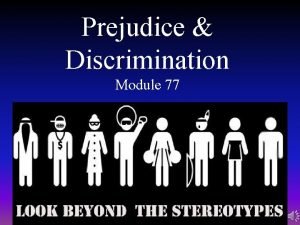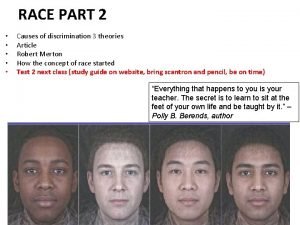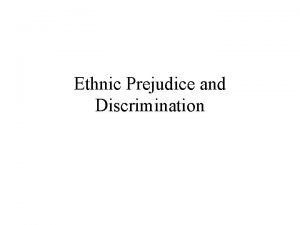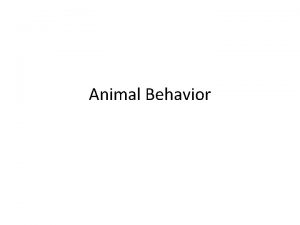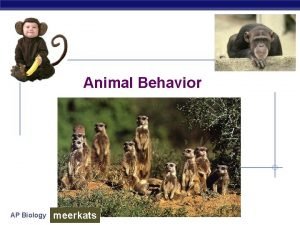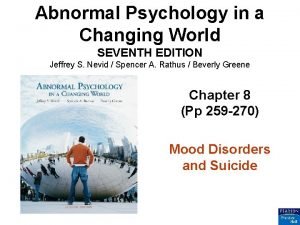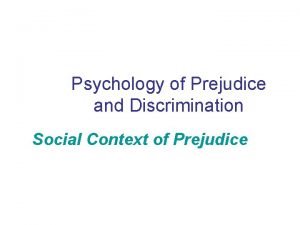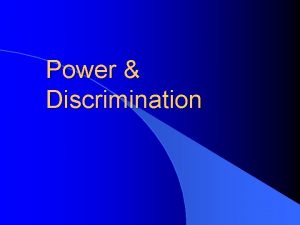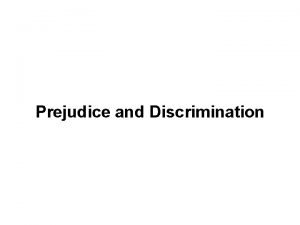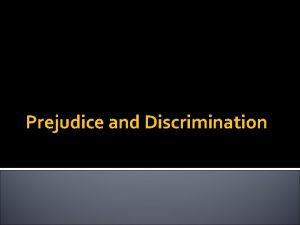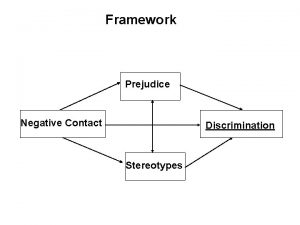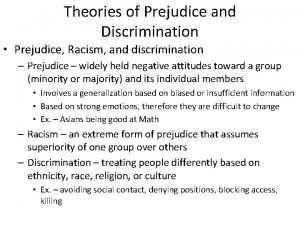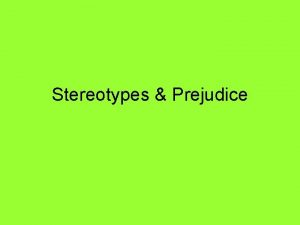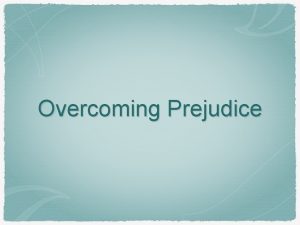Causes of Prejudice and Discrimination Learned Prejudice Theory









- Slides: 9

Causes of Prejudice and Discrimination


Learned Prejudice Theory • prejudice and the willingness to discriminate are attitudes that are learned. • this process begins in early childhood and is transmitted by agents of socialization such as mass media, peer group, family values and attitudes, etc. • because prejudice and discrimination are learned, they can be “unlearned” – though this process may take a long time.


Frustration-Aggression Theory • because life can be difficult and trying at times, people may become frustrated when they are prevented (of feel that they are being prevented) from accomplishing their goals. • when this frustration continues for a prolonged period of time, people begin searching for explanations for their difficulties. • this can lead to blaming others for their personal frustration (scapegoats) and to some people becoming aggressive towards the group. • often, the target becomes a particular religious or ethnic group and this can lead to prejudice and discrimination.


Competition Theory • rapidly changing social and economic conditions in modern societies can lead to competition for jobs and other scarce resources. • to give themselves a competitive advantage or edge, the dominant group in society may try to exploit (take advantage of) another, less powerful group in order to control these resources. • to justify this desire to exploit another group, the dominant group may choose to see the group they are exploiting as inferior; this opens the door to prejudice and discrimination. • competition for scare resources becomes most acute when economic conditions are not favourable.


Ignorance Theory • lack of information and/or personal experience can lead to incorrect assumptions and stereotypes about other groups. • over time, like a vicious circle, ignorance can lead to deeper feelings of prejudice and harsher forms of discrimination.
 Prejudgement vs prejudice
Prejudgement vs prejudice Allport's scale of prejudice
Allport's scale of prejudice Merton's typology of prejudice and discrimination
Merton's typology of prejudice and discrimination Langkah teks eksplanasi
Langkah teks eksplanasi Johannes volkelt empathy theory disadvantages
Johannes volkelt empathy theory disadvantages Proximate causes of behavior
Proximate causes of behavior Altruistic behavior
Altruistic behavior Learned helplessness theory psychology
Learned helplessness theory psychology Realistic-conflict theory proposes that prejudice ____.
Realistic-conflict theory proposes that prejudice ____. Antilocution definition
Antilocution definition
